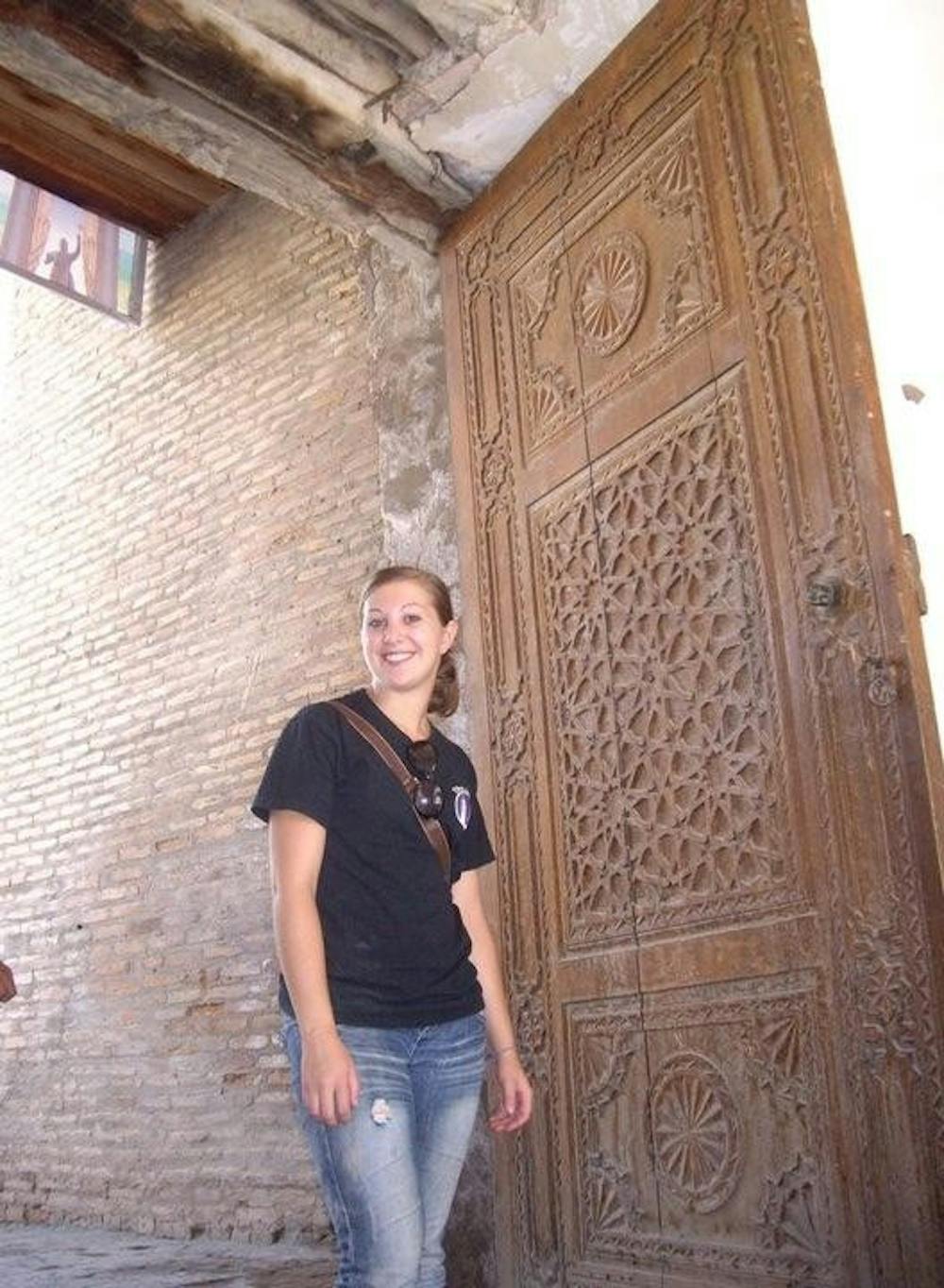Two ROTC students spend their summer abroad learning Persian
Fifth year ROTC student Bobby Thiel plays with his host brother and another neighborhood boy in Tajikistan. (Photo courtesy of Bobby Thiel)
By Rachel McIntosh Staff Writer mcintosh14@up.edu
While some students spent their summer laying by the pool working on their tan, two students from UP, 5th year ROTC student Bobby Thiel and sophomore Amy Gharring, spent their summer in Tajikistan learning the intricate details of the Persian language.
Thiel and Gharring participated in Project Global Officer, or Project GO, a Department of Defense-funded program to help cadets learn critical languages, or languages that are not commonly known or taught in the U.S. They also have the opportunity to study abroad as the total immersion part of the program.
According to Project GO's website, the program seeks to "(create a) foundational language and cultural expertise in the officer ranks and (establish) a cadre of language specialists."
Project GO offers 22 grants worth $9.3 million to universities across the country to help fund scholarships for ROTC cadets. The scholarship the cadets receive covers everything, including a meal plan while they were on campus at Arizona State University and a $300 food stipend for their three weeks in Tajikistan.The program provides both summer domestic and overseas study options.
"Persian covers three different languages: Tajik, Dari and Farsi. Dari is used in Afghanistan and it is the language of the region that the military has the most involvement with," Thiel said.
The program incorporated an eight-week intensive training course in Arizona where Thiel and Gharring spent four hours per day learning the Persian language. After the introductory course, they flew to Tajikistan and participated in a three-week immersion program.
"It was difficult to learn for sure," Gharring said. "It was interesting to learn the cultural aspects of it and the people there were a lot friendlier than I expected them to be."
Most applicants have plans to work in government positions that require a critical foreign language.
"With my current branch, it will be beneficial when I am deployed because I will be able to use some of the skills that I learned to communicate with the people in Afghanistan," Thiel said. "Having language skills opens up a lot of opportunities in the intelligence branch."
While immersing themselves in the language, Thiel and Gharring also had the opportunity to experience a whole new culture.
"We had class in the morning, and we had two or three outings during the week where we went to the botanical gardens and a shrine," Gharring said.
Because they were placed in homes with families, they had the chance to participate in some of the country's traditions, like Ramadan. In the Muslim culture, Ramadam is a period of fasting from sunrise to sunset.
"At least we tried to," Thiel said. "We drank during the day because we didn't want to risk dehydration because it was hot. It got up to 117 one day."
The opportunity to further their military careers while experiencing different cultures gave Thiel and Gharring a new perspective on their own lives in the U.S.
"The best part was all the friends I made all over the world and getting to see how happy people are who live with so little compared to us here in America," Gharring said.
Sophomore Amy Gharring was able to truly experience Tajikistan by visiting cultural locations. (Photo courtesy of Amy Gharring)








